Test Bank For Pharmacology for Nurses A Pathophysiologic Approach, 6th Edition Michael P. Adams
Chapter 4 Pharmacokinetics
- A nurse is conducting medication education for patients with hypertension. The focus of the education is on enhancing the absorption of their medications. The nurse determines that learning has occurred when the patients make which statement?
- “We can safely take the drug for at least 6 months beyond the expiration date.”
- “We don’t need to worry about storage of the drug, it won’t lose potency.”
- “We should not take our medications with milk or dairy products.”
- “We need to be careful about taking the medication with certain foods.”
Answer: 4
Explanation:
- Patients should be taught to avoid taking medications beyond the expiration date.
- Storage can affect the medication’s strength and may affect how it responds in the body.
- There are many more foods that will alter the absorption of medications other than milk and dairy products.
- Food can alter the absorption of many medications.
Page Ref: 38
Cognitive Level: Analyzing
Client Need/Sub: Physiological Integrity: Pharmacological and Parenteral Therapies
Standards: QSEN Competencies: III.A.1 Demonstrate knowledge of basic scientific methods and processes. | AACN Essential Competencies: II.1 Explain the interrelationships among theory, practice, and research. | NLN Competencies: Knowledge and Science: Integration of knowledge from nursing and other disciplines. | Nursing/Integrated Concepts: Nursing Process: Evaluation
Learning Outcome: 4-4 Discuss factors affecting drug absorption.
MNL Learning Outcome: 4.1 Recognize how drugs cross plasma membranes to reach their target cells.
- A client prescribed a loading dose to be followed by a lower maintenance dose asks the nurse why the maintenance dose is lower. Which response should the nurse provide the client?
- “The initial dose shortens the half-life, so the medication would work more quickly.”
- “We always give medications this way; the healthcare provider did not make a mistake.”
- “You had a larger dose initially so that the medication would work more quickly.”
- “Giving a larger dose initially will reduce the chance of side effects.”
Answer: 3
Explanation:
- Loading doses do not shorten the half-life of a drug.
- Not all medications are initiated with a loading dose.
- Loading doses of medications are used to quickly induce a therapeutic response.
- Loading doses do not reduce the occurrence of side effects.
Page Ref: 45
Cognitive Level: Applying
Client Need/Sub: Physiological Integrity: Pharmacological and Parenteral Therapies
Standards: QSEN Competencies: III.A.1 Demonstrate knowledge of basic scientific methods and processes. | AACN Essential Competencies: II.1 Explain the interrelationships among theory, practice, and research. | NLN Competencies: Knowledge and Science: Integration of knowledge from nursing and other disciplines. | Nursing/Integrated Concepts: Nursing Process: Implementation
Learning Outcome: 4-12 Differentiate between loading and maintenance doses.
MNL Learning Outcome: 4.4 Relate how time-response relationships affect a drug’s therapeutic response.
- A nurse is caring for a client with meningitis who is receiving a water-soluble drug. The client asks the nurse why the healthcare provider changed the prescription to a lipid-soluble drug. What is the best response by the nurse?
- Lipid-soluble drugs are better because of protein binding.
- Lipid-soluble drugs are more effective in treating the client’s illness.
- Lipid-soluble drugs are better because they have fewer side effects.
- Lipid-soluble drugs are more effective because they are excreted at a slower rate.
Answer: 2
Explanation:
- Not all lipid-soluble drugs are protein bound.
- Drug molecules that are lipid soluble will usually pass through plasma membranes by simple diffusion and more easily reach their target cells. The client has meningitis, so a drug that can cross the blood brain barrier will be more effective.
- Lipid-soluble drugs do not necessarily have fewer side effects. Not all lipid-soluble drugs are protein bound.
- Lipid solubility does not affect drug excretion.
Page Ref: 38
Cognitive Level: Applying
Client Need/Sub: Physiological Integrity: Pharmacological and Parenteral Therapies
Standards: QSEN Competencies: III.A.1 Demonstrate knowledge of basic scientific methods and processes. | AACN Essential Competencies: VII.5 Use evidence-based practices to guide health teaching, health counseling, screening, outreach, disease and outbreak investigation, referral and follow-up throughout the lifespan. | NLN Competencies: Knowledge and Science: Integration of knowledge from nursing and other disciplines. | Nursing/Integrated Concepts: Nursing Process: Planning
Learning Outcome: 4-4 Discuss factors affecting drug absorption.
MNL Learning Outcome: 4.2 Consider how absorption and distribution of drugs affect a drug’s therapeutic response.
- The patient is malnourished and has a low serum albumin. A nurse is caring for a client with a low serum albumin level. The healthcare provider has ordered aspirin, which is a highly protein-bound drug. Which evaluation by the nurse best describes the effect this will have on the client?
- The client will be at risk of experiencing a decreased effectiveness of the drug.
- The client will be at risk of experiencing toxic effects of the drug.
- The client’s kidneys will excrete the drug at a faster rate.
- The client’s liver will metabolize the drug at a faster rate.
Answer: 2
Explanation:
- Effects from the drug will not be decreased because there is less protein for aspirin to bind with and more free drug available.
- Aspirin is a protein-bound drug. With a low albumin, there is less protein for aspirin to bind with, making more free drug available. There may be toxic effects from the drug because there is less protein for aspirin to bind with and more free drug available.
- The kidney will not be able to balance the amount of the drug and excrete it at a faster rate.
- The liver will not be able to metabolize the drug at a faster rate.
Page Ref: 41
Cognitive Level: Analyzing
Client Need/Sub: Physiological Integrity: Pharmacological and Parenteral Therapies
Standards: QSEN Competencies: III.A.1 Demonstrate knowledge of basic scientific methods and processes. | AACN Essential Competencies: IX.8 Implement evidence-based nursing interventions as appropriate for managing the acute and chronic care of patients and promoting health across the lifespan. | NLN Competencies: Knowledge and Science: Integration of knowledge from nursing and other disciplines. | Nursing/Integrated Concepts: Nursing Process: Evaluation
Learning Outcome: 4-7 Describe how plasma proteins affect drug distribution.
MNL Learning Outcome: 4.2 Consider how absorption and distribution of drugs affect a drug’s therapeutic response.
- A client is admitted to the hospital in chronic renal failure and several drugs are prescribed. What best describes the nurse’s assessment of this client?
- The client’s liver may compensate for renal failure so the drugs may be effective.
- The client may have drug toxicity from all the drugs.
- The client may have drug toxicity only if the drugs are excreted by the kidneys.
- The client may have decreased effectiveness of the drugs.
Answer: 2
Explanation:
- The liver cannot compensate for renal failure; the patient is at risk for drug toxicity.
- Since the kidneys are the primary route of excretion for many drugs, chronic renal failure puts the patient at risk for drug toxicity.
- The patient in chronic renal failure will more likely have drug toxicity than decreased effectiveness of the drugs.
- Since the majority of drugs are excreted by the kidneys, the patient will most likely have drug toxicity.
Page Ref: 41
Cognitive Level: Applying
Client Need/Sub: Physiological Integrity: Pharmacological and Parenteral Therapies
Standards: QSEN Competencies: III.A.1 Demonstrate knowledge of basic scientific methods and processes. | AACN Essential Competencies: IX.8 Implement evidence-based nursing interventions as appropriate for managing the acute and chronic care of patients and promoting health across the lifespan. | NLN Competencies: Knowledge and Science: Integration of knowledge from nursing and other disciplines. | Nursing/Integrated Concepts: Nursing Process: Assessment
Learning Outcome: 4-8 Identify major processes by which drugs are excreted.
MNL Learning Outcome: 4.3 Consider factors that affect metabolism and excretion of drugs and how they affect a drug’s therapeutic response.



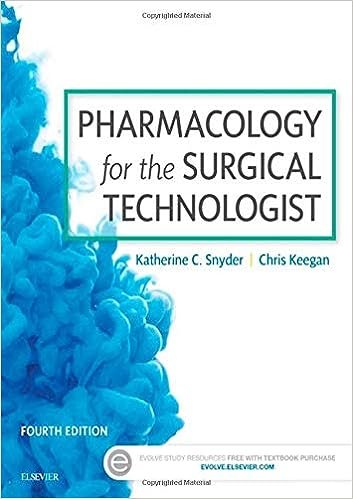
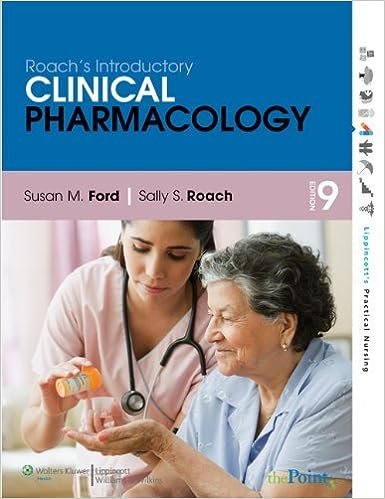
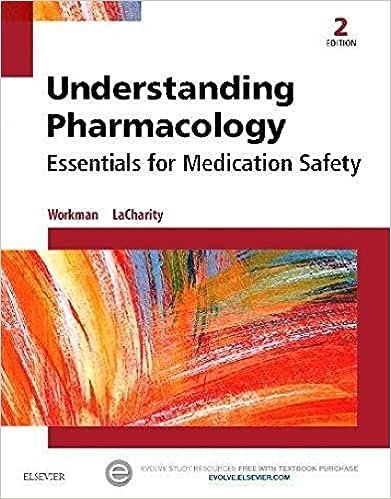
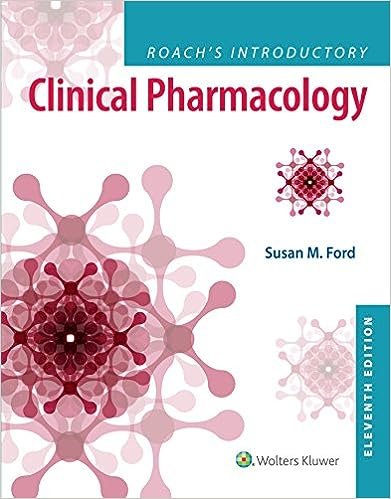
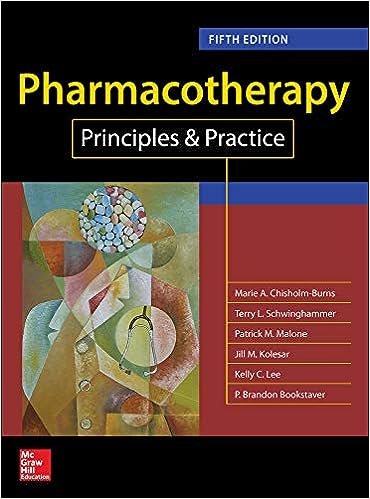
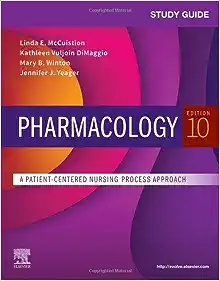
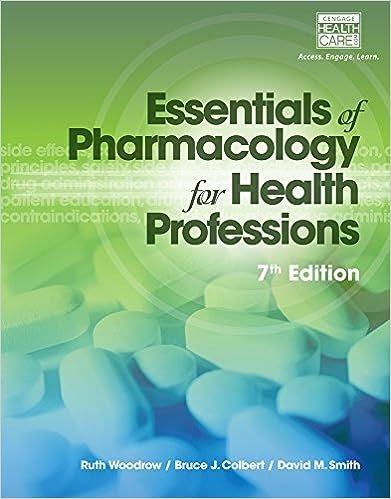
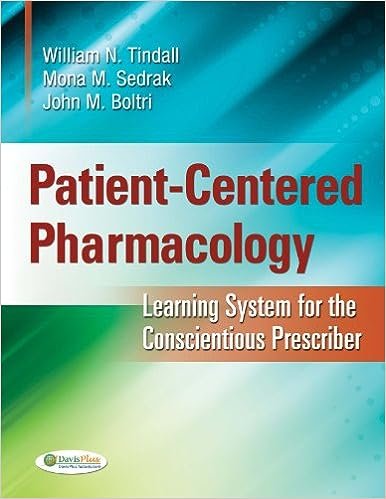
Reviews
There are no reviews yet.